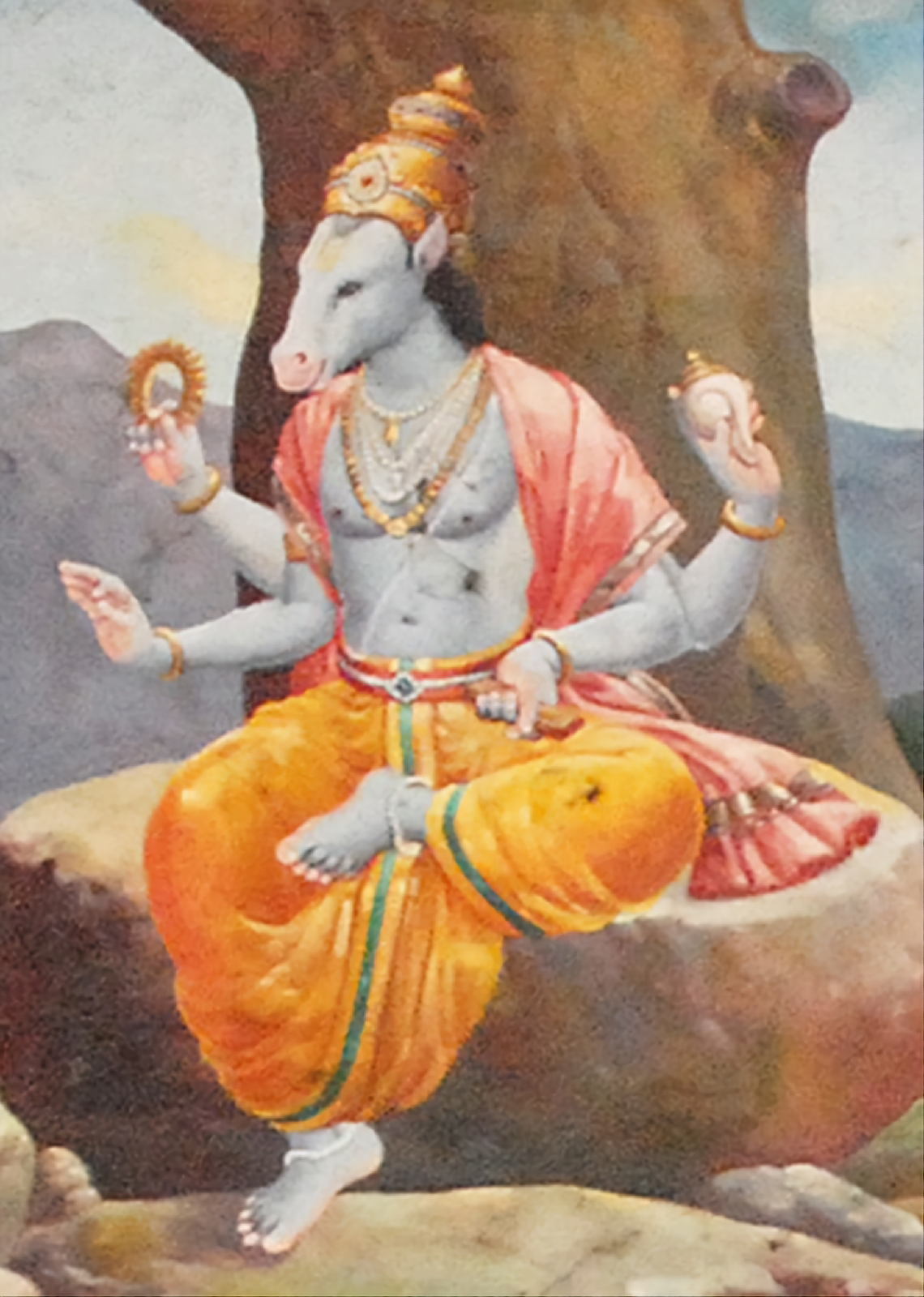Hayagriva represents a unique synthesis of divine attributes, embodying wisdom, knowledge, and a transcendent form that merges the human with the equine.
Hayagriva represents a unique synthesis of divine attributes, embodying wisdom, knowledge, and a transcendent form that merges the human with the equine. As an avatar of Vishnu, one of the principal deities of Hinduism, Hayagriva's iconography speaks volumes about the religion's complex theology and its approach to divinity. The image of a deity with a human body and a horse's head, draped in white and seated on a white lotus, is not just a testament to Hinduism's rich symbolic language but also to its inclusive vision of the divine, where form and formlessness meet.
The color white, associated with purity, transcendence, and peace, dominates the depiction of Hayagriva, reinforcing his role as a god of wisdom and knowledge. This choice of color serves to underline the purity of the knowledge he bestows, suggesting that true wisdom transcends the physical and the temporal, reaching into realms of universal truth and eternal beauty. The white lotus upon which he is seated symbolizes purity, beauty, and the unfolding of spiritual truths, reinforcing the idea that knowledge and wisdom are the foundations upon which enlightenment is built.
In the figure of Hayagriva, we see the embodiment of the principle that knowledge is the ultimate liberator, freeing the soul from the shackles of ignorance and illusion. This avatar of Vishnu is not just a teacher of sacred texts and rituals but represents the profound understanding that underpins the cosmos itself, offering insights into the nature of reality, the soul, and the divine.
Hayagriva's form, combining elements of humanity and divinity, suggests a bridge between the earthly and the heavenly, between the known and the unknown. His horse's head, with its keen senses and swift speed, symbolizes the swift penetration of intellect into the realms of knowledge and the ability to grasp the subtlest of truths.
Worship of Hayagriva, especially in the contexts of learning and scholarly pursuits, emphasizes the sanctity of knowledge and the respect due to the processes of learning and teaching. It highlights the belief that divine grace is essential for the acquisition of true knowledge and wisdom, and that such grace is accessible to all who seek it with sincerity and devotion.
In contemplating Hayagriva, we are invited to reflect on the nature of knowledge itself: its sources, its purposes, and its ultimate goal. The quest for knowledge, as symbolized by Hayagriva, is not merely for the accumulation of information but for the transformation of the self and the realization of one's inherent divinity. Through this lens, Hayagriva's teachings transcend the boundaries of religion and philosophy, offering a universal message about the power of knowledge to transform, enlighten, and liberate.


